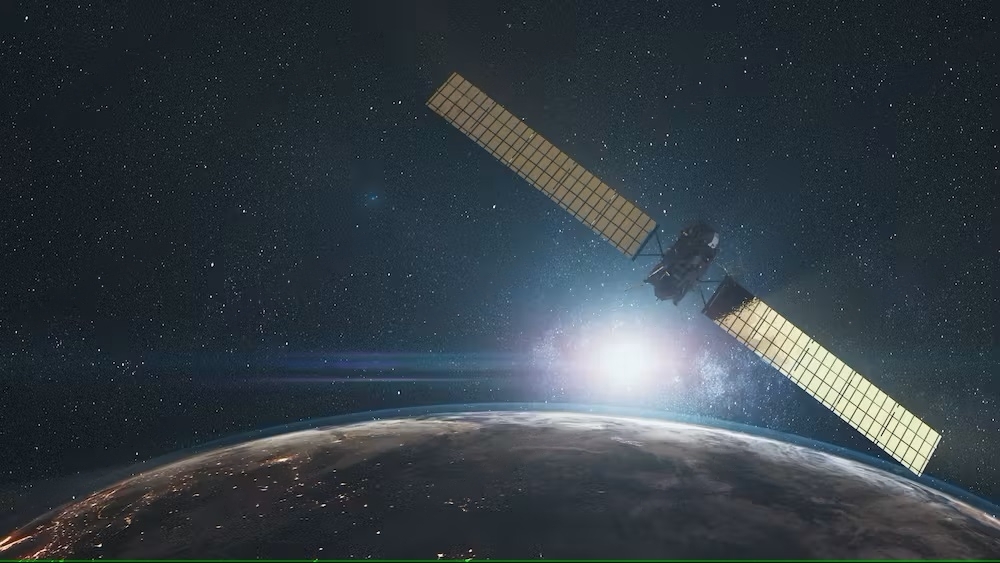Space exploration and innovation are ever-evolving domains, and Europe has played a vital role in this dynamic environment through the European Space Agency (ESA), also known as Eurospace. Founded in 1975, ESA is an intergovernmental organization that brings together 22 member states and collaborates with other global players to undertake ambitious space missions. In this article, we will explore Europe’s key projects in space while examining the challenges arising from growing competition with other international actors.
Eurospace: A Brief Overview
The European Space Agency (ESA) was established with the aim of coordinating member countries’ efforts in space exploration, scientific research, and technological development. Since its inception, ESA has achieved numerous significant milestones in space, making it one of the leading space agencies in the world.
ESA collaborates with 22 member countries, including France, Germany, Italy, Spain, and the United Kingdom, to name a few. This international collaboration allows for cost and resource-sharing, bringing together diverse and complementary expertise.
Over the years, ESA has successfully conducted several noteworthy space missions, such as the Ariane program for commercial satellite launches, the Rosetta probe that landed on comet 67P/Churyumov–Gerasimenko, and the Hubble Space Telescope, which provided awe-inspiring images of the universe.
Europe’s Ambitious Space Projects
Space Exploration
ExoMars Mission: Searching for Life on Mars
ExoMars is an ambitious Martian exploration mission conducted in collaboration with the Russian space agency, Roscosmos. Its goal is to search for signs of past or present life on the Red Planet. The mission includes an atmospheric probe to study Mars’ atmosphere and a rover to explore the surface and analyze soil samples.
JUpiter ICy moons Explorer (JUICE): Exploring Jupiter’s Moons
JUICE is a mission directed towards Jupiter and three of its most intriguing moons: Ganymede, Callisto, and Europa. The objective is to study these moons in-depth to better understand their composition, atmosphere, and the possibility of hosting liquid water, opening the door to research on extraterrestrial life.
Lunar Exploration Missions: A Return to the Moon
ESA is also involved in several lunar missions, such as the “Moon Village” project, which aims to establish a permanent human presence on the Moon in cooperation with other countries and space agencies.
Satellite Constellations
Galileo: The European Satellite Navigation System
Galileo is a satellite navigation system developed by ESA in collaboration with the European Union. Designed to provide accurate and independent navigation services, it competes with the American GPS and the Russian GLONASS systems.
Copernicus: The European Earth Observation Program
Copernicus is an initiative that utilizes a network of Earth observation satellites to monitor our planet, providing crucial data on climate, environment, natural disasters, and much more.
Scientific Research
James Webb Space Telescope: A Collaboration with NASA
ESA is participating in the James Webb Space Telescope mission in collaboration with NASA and other international partners. This infrared telescope will enable groundbreaking discoveries about exoplanets and the early universe.
CERN and Space Particle Physics Experiments
While not directly related to space, CERN (European Organization for Nuclear Research) plays a crucial role in understanding the universe. CERN is also involved in space projects, such as studying cosmic rays and detecting particles in space.
Growing Competition in European Space
Major Global Players
Competition in the space domain has become intense, with several major global players seeking to expand their influence in space. Among them:
The United States: NASA and Private Companies like SpaceX
NASA, with its rich history of space achievements, remains an undisputed leader in space exploration. SpaceX, led by Elon Musk, has become a major force with its crewed spaceflight program and reusable commercial launches.
China: The Rise of the Chinese Space Program
China has made significant strides in space in recent years, with successful missions to the Moon, Mars, and other ambitious projects in the pipeline.
Russia: A Long History of Space Success
Russia continues to be a major player in the space industry, providing reliable launchers and participating in significant exploration missions.
Competition for Commercial Contracts
The rapid growth of the commercial space industry has also led to increased competition for commercial contracts in satellite launches, telecommunication services, and space-based applications.
Commercial Launches: The Rise of SpaceX and Blue Origin
SpaceX and Blue Origin have disrupted the space launch industry with innovative technologies, cost reduction, and the ability to reuse rockets for subsequent launches. This competition has driven efficiency and cost reduction, benefiting commercial space operators and countries seeking to launch satellites.
Commercial Satellite Applications: Private Companies at the Forefront
Numerous private companies, such as SpaceX, OneWeb, and Amazon’s Project Kuiper, are developing satellite constellations to provide global high-speed internet access. This race to offer global communication services creates fierce competition and attracts increasing investor interest.
Challenges of Cybersecurity and Space Control
As space usage increases, concerns about cybersecurity for satellites and space infrastructures also grow. Cyberattacks could potentially disrupt critical space operations and compromise the security of information and data transmitted from space. Additionally, the militarization of space raises geopolitical and international security concerns.
Challenges in Securing Satellites and Space Infrastructures
ESA and member countries must address cybersecurity challenges to ensure the protection of satellites in orbit and essential communication systems. Investments in securing space systems have become a priority to maintain the integrity and reliability of space operations.
Political Implications of the Militarization of Space
The militarization of space raises concerns about space arms race and geopolitical tensions that may ensue. ESA must navigate this complex environment to promote peaceful cooperation while safeguarding European interests.
Challenges and Opportunities for Eurospace
Need for Innovation and Partnership
To remain competitive on the global space stage, Europe must continue to invest significantly in innovation and technological research. International partnerships with global players can also strengthen Europe’s position in space and enable ambitious space missions.
Fostering Research and Development in the Space Sector
Investing in research and development will keep ESA at the forefront of space technology, fostering innovation in new areas and enhancing the performance of future missions.
Strengthening International Cooperation to Achieve Common Goals
By collaborating with other space agencies and countries, ESA can share costs and resources, access diverse expertise, and undertake ambitious projects beyond individual capacities of member states.
The Role of Private Companies
The increasing integration of private companies in the space sector offers growth and innovation opportunities. However, it also raises questions concerning regulation, data ownership, and the protection of European interests.
Collaboration between ESA and Private Space Companies
By working in partnership with private companies, ESA can benefit from the flexibility and efficiency of the private sector while maintaining control over missions and strategic objectives.
Advantages and Risks of Increased Involvement of the Private Sector
Increased involvement of the private sector can accelerate technological development and cost reduction. However, it may also lead to an excessive reliance on foreign commercial entities.
Space Sustainability and Ethics
As space becomes increasingly accessible, space sustainability and ethics become crucial concerns. Europe must take measures to preserve the space environment and ensure responsible and ethical use of space.
Environmental Concerns in Space Exploration
Space debris and potential environmental impacts of space missions raise sustainability concerns in space exploration.
Ethics in the Use of Space and Collected Data
Responsible use of space data, including privacy and sovereignty considerations, is essential to maintain public and international trust.
Conclusion
Eurospace faces complex and exciting challenges, but it also holds numerous opportunities to continue ambitious projects and strengthen its position as a major player on the global space stage. By leveraging innovation, international cooperation, and engaging in sustainable and ethical space exploration, Europe can write a compelling new chapter in the history of space conquest. As Europe’s space endeavors evolve, it will be crucial to strike a balance between competitiveness, collaboration, and responsible stewardship of the space domain. Only by navigating these challenges skillfully can Europe propel itself to new heights in the ever-expanding cosmos.
Sources :






